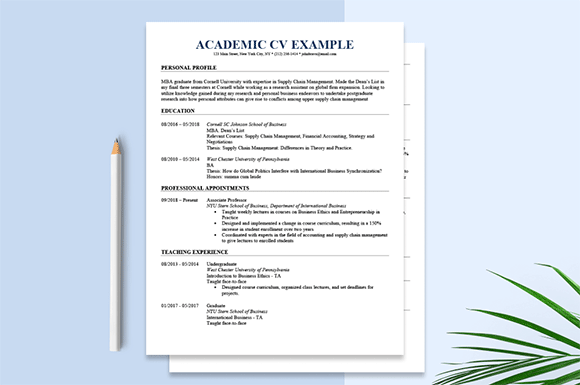When you are looking for a job, there are a lot of things you should take care of. If you are multitalented, you need to figure out which vacancies to focus on. You also need to make sure that you have the necessary skills for the desired position. And finally, you should prepare mentally for an interview, as some find going through it pretty tough. But wait, you need to land an interview first! And the best and only way to land one is to have an ideal CV.
Crafting a CV is one of the most difficult parts of the job-seeking process. It’s a ticket to the interview, and you need to sweat over it to make sure that it’ll catch the eye of a hiring manager. And when you’re googling information on the ideal CV tips, it always feels that you are missing out on something. Still, the basics are:
- keep it short;
- use a resume builder;
- tailor it for the vacancy.
But there are various CV templates and samples to check. And when checking them, you get the feeling that your CV will never be good enough. Yet, you can create a perfect CV.
If you don’t want to dedicate a lot of time to it, you can hire a resume writer now, and the professionals will take care of it. But if you prefer doing things on your own, check out the recruiters’ tips on writing a great CV.
Make It Idiot-Proof
You know everything about your profession. And you don’t want to give a vague description of your professional level. So, your CV is filled with information on your work experience. You go into detail about what you were doing at each of your jobs and what skills you have acquired from that. And while you are right about it, profession-wise, you are absolutely wrong CV-wise.
You see, hiring managers have little to no experience with your job. None of them ever worked in your niche. So, a detailed description of your work experiences will have zero impact on them. Besides, recruiters have to go through several dozens of CVs daily, which means they are not reading each one from top to bottom. They just run their eyes over it, focusing on the necessary skills.
So, make your CV idiot-proof. Put everything down so even the person who has zero experience in, let’s say, writing apps in Golang can understand that you are a skilled and seasoned software developer. Don’t go into too many details; just list the skills and achievements. The simpler you put it, the better.
Be Straightforward About Your Career Goals
When you’re stating your goals in a career objective, you need to be straightforward. Once again, recruiters are running through a lot of CVs. So, the clearer your career goals, the easier it is for them to figure out whether you are a match for the position or not. But, as always, there are a few rules to follow.
It’s clear that your career objective shouldn’t be something confusing like: “Looking for a position that will allow me to implement my past work experiences and send me further up my career path.” Still, putting something as plainly as “Looking for the position of a Talent Sourcer” may not be the best idea. It’s vague rather than straightforward.
Opt for something like “A Talent Sourcer with 2+ years of experience, looking for a similar position with a chance of getting promoted to a recruiter.” In this sentence, you let the recruiter know you are experienced and show what you can offer to the company while stating your next goal.
Use Keywords
You know that you need to study the job description to tailor your CV accordingly. There’s surely a match between the required skills and responsibilities and the strengths you have as a candidate. What you need to do is to make sure that they match perfectly. This is when the keywords come in handy.
When hiring managers are skimming through your CV, they are looking for keywords. Take keywords from the job description and incorporate them into your CV, highlighting specific skills, tools, and responsibilities.
Specify Your Accomplishments
Your CV must contain your accomplishments. But instead of a generic list of them, you should provide examples. A vague description may raise questions. “Increased customers’ experience” — how exactly? “Was an irreplaceable teammate” — and the company lets the irreplaceable employee go? So, being specific about your accomplishments is a must.
When you are describing your achievements, it’s always better to use numbers: “Developed an AI-based testing tool, which reduced website testing time by 70%.” A statement like that would show the results of your achievements. Similarly, “Resolved 80+ customer tickets daily” works way better than resolved a lot.
Finally, you need to be truthful about your accomplishments: avoid taking more credit than you can actually claim.
Name It!
While that may sound ridiculous, a lot of job seekers name their CV document plainly “CV.” It’s quite logical because you don’t want to lose it in your folders, but you need to look at it from the hiring managers’ perspective.
Think how many files titled “CV” they have on their computers. If you don’t want your CV to get lost, you need to title it with your name. It saves recruiters’ time and ensures your CV won’t be lost among other candidates.
Final Thoughts
Crafting a perfect CV is not that difficult when you know what to do. And multiple resume builders out there make things easier for you. However, when utilizing all the tools and tips available, don’t follow the rules blindly. After all, your CV should be about you, not some faceless, hypothetical ideal candidate.


